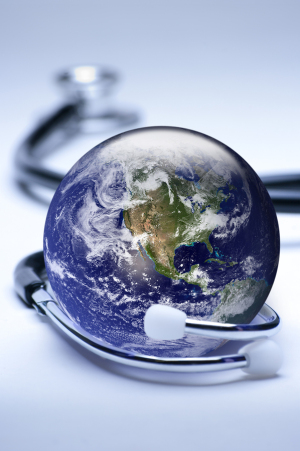New WHO report discusses health challenges for next 15 years
por
Lauren Dubinsky, Senior Reporter | December 10, 2015

The World Health Organization (WHO) launched a report on Tuesday that detailed global health trends since 2000 and the challenges for the next 15 years.
The report delves into the progress made under the United Nations Millennium Development Goals (MDGs), which are eight goals to be met by 2015, ranging from halving extreme poverty rates to stopping the spread of HIV/AIDS, as well as the actions that need to be carried out to meet the Sustainable Development Goals (SDGs) that will come into effect on January 1.
According to the report, the 17 SDGs are "broader and more ambitious" than the MDGs, in order to ensure that they pertain to all countries. Virtually all of the SDGs are either health-related or will benefit health indirectly.
One of the goals is to ensure healthy lives and promote well-being for all ages, which involves 13 targets that focus on universal health coverage and noncommunicable diseases including cancer and diabetes.
"Universal health coverage cuts across all of the health-related goals," Dr. Marie-Paule Kieny, assistant director-general of health systems and innovation at WHO, said in a statement. "It is the linchpin of development in health and reflects the SDGs strong focus on equity and reaching the poorest, most disadvantaged people everywhere."
A few of the other goals focus on reproductive, maternal, newborn, child and adolescent health, infectious diseases including HIV, tuberculosis and malaria, mental health and substance abuse including narcotics and dangerous use of alcohol and injuries and violence.
Even though the MDGs did not meet a number of global targets, over the past 15 years there were significant declines in child and maternal mortality and progress in the fight against HIV, tuberculosis and malaria in developing countries. The report stated that in order to continue progressing, global funding for health needs to be doubled, new funding mechanisms and partnerships need to be developed and the civil society needs to play a role in tackling diseases such as HIV/AIDS.
However, one of the main hurdles will be measuring the progress since there is a lack of health data in developing countries. For example, regular, high-quality data from all population groups is needed to determine causes of death so that they know where resources are needed.
The WHO is working with its partners to develop a Health Data Collaborative in early 2016 to help countries built better health data systems. The WHO Global Reference List of 100 Core Indicators, which was published earlier this year, is one of the ways the organization is helping with this.
"As the global agency with the mandate to cover the whole health agenda, WHO will take a leading role in supporting countries to set their own national targets and strategies, advising on best-buy interventions, defining research priorities and monitoring progress in achieving the health-related SDGs," said Kieny.
|
|
|
You Must Be Logged In To Post A Comment
|
